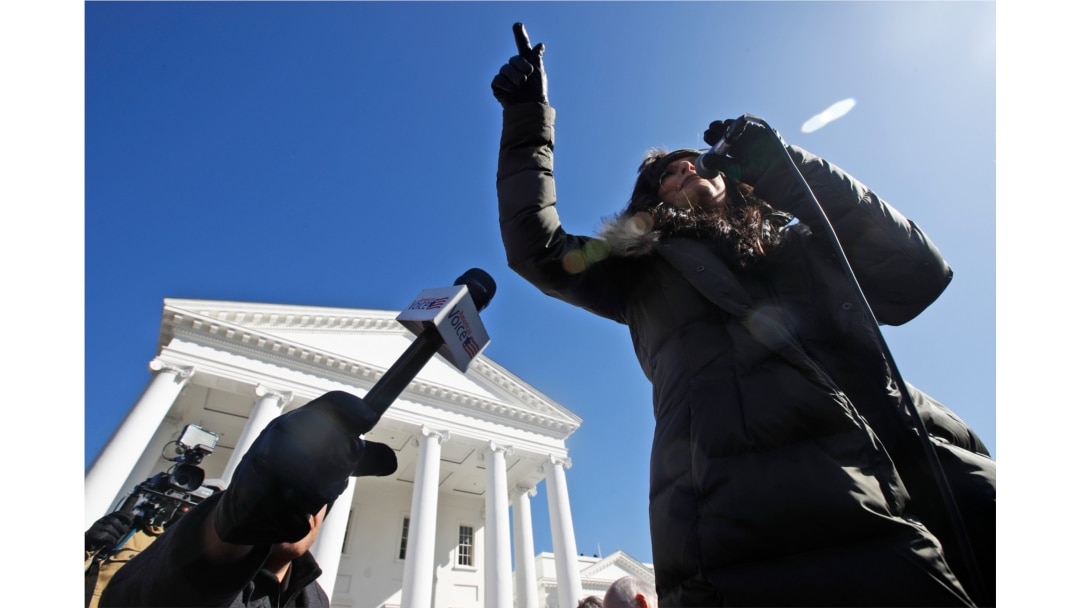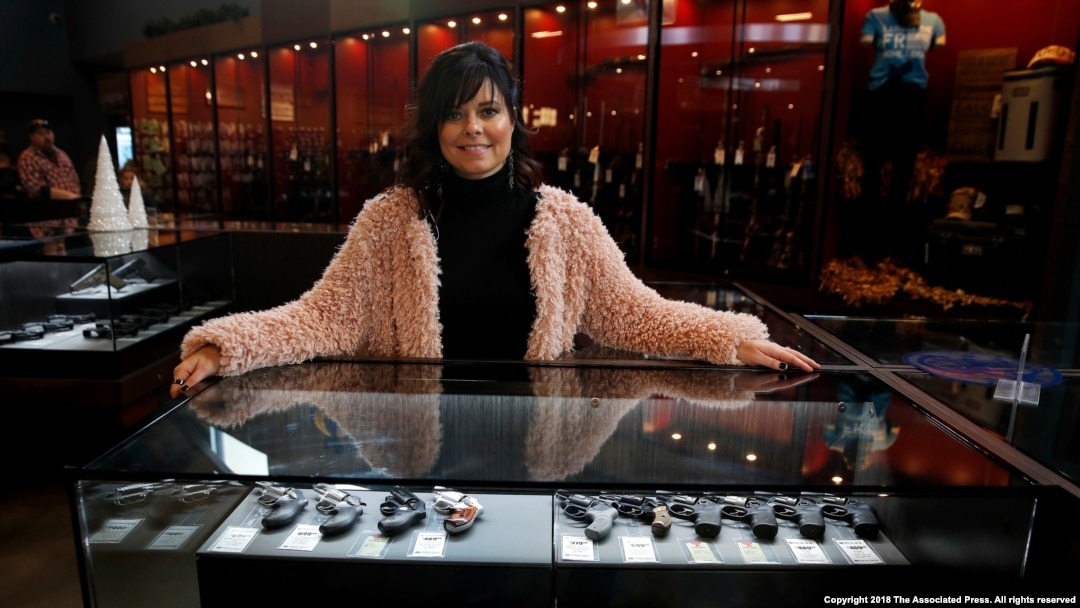In 2020, Americans battled a pandemic, social injustice and a contested election — conflicts that led many people to become gun owners.
And, consistent with a slow trend over the past decade, more of those gun owners are women.
Beth Privette, who helps run the Women Arm Yourselves Safety program in Brevard, North Carolina, said she added two classes to her calendar in 2020 "because there was such a need for it."
"In the last year and a half, we've seen quite an uptick," she told VOA.
Preliminary data from Harvard's School of Public Health suggest that women accounted for about half of all gun purchases between 2019 and 2021, and that new gun owners are more likely to be female.
Kylie Tyler, a gun owner in Washington state who grew up hunting with her father, said she noticed that some of the people who had initially been shocked to learn she owned a gun expressed interest in purchasing one last year.
"In the Northwest, there has been a lot of civil unrest, and that specifically has caused a lot of people that I've talked to to rethink that initial evaluation," Tyler said.
But last year's spike in background checks for gun purchases, which researchers say was to be expected during an election year fraught with civil unrest, is one of many bumps in a steady increase in gun purchases and ownership in the U.S., particularly among women.
"If you follow the background checks over time, what you see is that they were relatively flat from around 2000 to around 2005 or 2006, and then they started to trend upwards," Matthew Miller, an adjunct professor at Harvard School of Public Health, told VOA.
Miller noted that there is no federal gun registry; therefore, the most common way to estimate gun purchases is by counting background checks.
However, background checks are also conducted when gun owners apply for concealed carry permits or hunting licenses, making it more difficult for researchers to discern which checks were done for new gun owners in the United States.

FILE - Jan Morgan, National Founder 2A Women, speaks during a pro gun rally in front of the Virginia State Capitol, Jan. 20, 2020, in Richmond, Va.
While Privette and others noticed a spike in women owning or using guns last year, other firearm retailers and shooting range owners say the trend has been consistent over the past decade.
"Thirty years ago, men were buying their wives or girlfriends guns — not anymore," Jeff Stucker, owner of On Target in Asheville, North Carolina, told VOA. "I tell them, 'You don't let your husband buy your shoes, do you? Don't let him buy your gun!'"
The reasons more women are arming themselves vary greatly. Privette says a big one is that more women are living alone, regardless of their age.
"A recurring thing that we see here is, 'My husband has passed away and I have this gun. He kind of showed me how to use it. But now I'm by myself,'" Privette said, noting that many of her new clients are in their 60s and 70s.
FILE - In this May 27, 2017, photo, a woman learns how to load a handgun magazine during a firearms class in Lawrenceville, Ga.
Tyler said that when her husband is away, she sleeps better at night knowing that a firearm is in the house.
"Being a 5-foot-4 woman (162.56 cm), I'm extremely uncomfortable being by myself," she said.
Both women also identified "civil unrest" and "increased violence" in their respective parts of the country as reasons their friends and clients purchased, or considered purchasing, a firearm.
Both women also stress that they want all women to know how to safely and accurately operate a gun.
Tyler has encouraged her mother to learn to handle a gun, as many of her family members are avid hunters, and Privette says her primary focus when training women is to ensure their safety.
And not only more women but an increasing number of Black Americans have purchased guns, perhaps because they fear for their safety in the wake of the high-profile killings of Breonna Taylor, Ahmaud Arbery and George Floyd in 2020.
Miller, citing the preliminary data from Harvard's study, estimates that about 20% of background checks tied to gun purchases were for Black Americans, with another 20% attributable to Hispanic Americans.
But, of course, the claim that owning a gun makes a household safer is disputed.
Miller notes that, in particular, the risk of suicide increases dramatically — up to fivefold — in households with guns.
"It's irrefutable," he said.
“I think when people buy guns, they don't think about the risks they're assuming for themselves or imposing on other people,” Miller said. “And when they do, they think more in terms of homicide and accidents when, in fact, suicide is responsible for nearly two-thirds of all the gun deaths in this country.”


